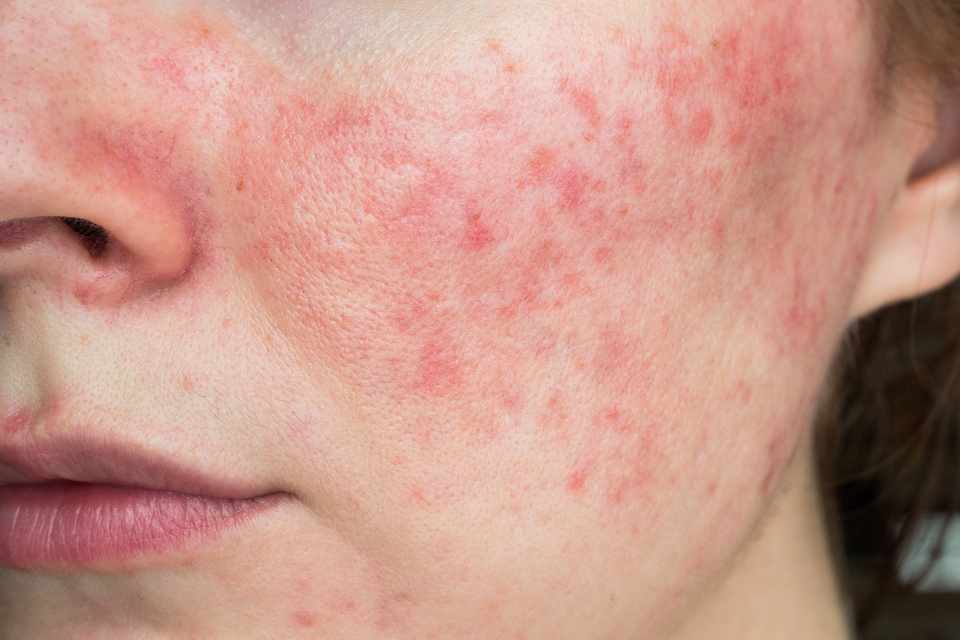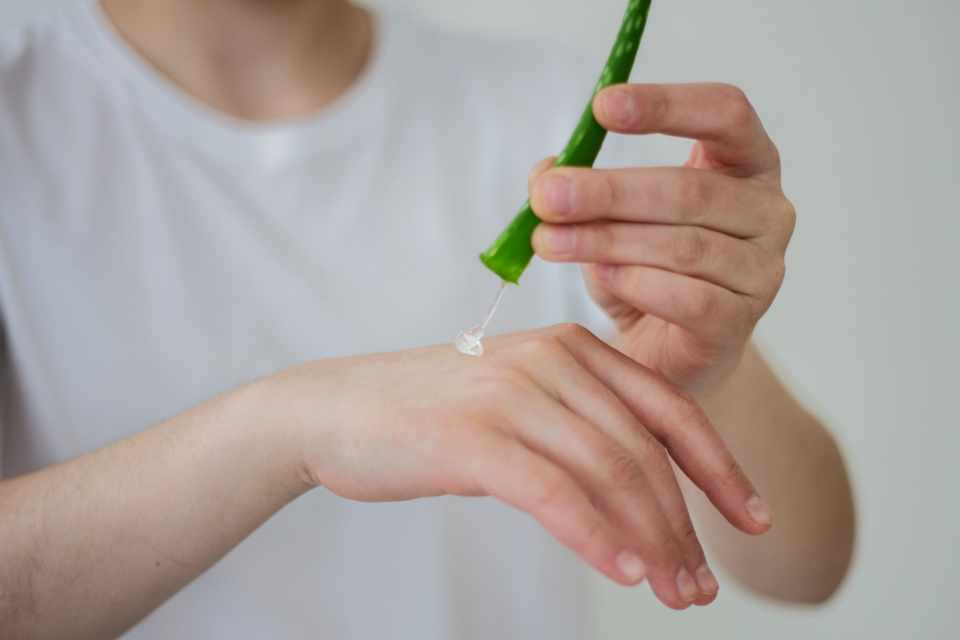Rosacea is a common inflammatory facial skin condition. In fact it may affect up to 10% fair-skinned people of Northern European descent. People with rosacea often also report having digestive symptoms. So, could this be another condition showing a link between gut health and the skin?
Symptoms of rosacea
Symptoms usually occur in older people. Women are more likely to have rosacea than men. Easy facial flushing is the first symptom to appear. Which occurs more and more frequently until the redness is permanent. There are usually also spots and fine, spidery, red veins called telangiectasias. As well as stinging, burning, dryness or swelling of the skin.
What causes rosacea?
Over the years several causes have been considered. Such as the possibility of abnormal blood vessels or certain species of facial mites.
Scientists still don’t agree on the cause of rosacea, but there are some know trigger factors:
- sun exposure
- temperature changes
- emotional stress
- alcohol
- spicy foods
- caffeine
Many of these factors increase the production of free radicals (reactive oxygen species). Which in turn leads to inflammation.
We also know that stress affects the skin’s ability to protect itself against infections. Stress also exacerbates other skin conditions, such as atopic dermatitis and psoriasis.
Conventional treatment aims to control or manage symptoms. As well as avoiding known triggers. Typical medical treatments include topical creams and gels to reduce spots or redness. Or sometimes oral antibiotics as needed.
Laser or light therapy is one effective way to shrink the blood vessels and make them less visible. But these treatments can be expensive. What’s more they only address symptoms.
A genetic link?
Studies show that rosacea often occurs in people with autoimmune conditions such as type 1 diabetes, rheumatoid arthritis and coeliac disease. Leading many researchers to suggest a common genetic link.
The gut-skin connection
Small intestinal bacterial overgrowth (SIBO) is a condition I have discussed before. Recently, scientists found a higher prevalence of SIBO in people with rosacea. Along with the finding that clearing the SIBO improves the skin condition. Together this suggests that the gut microbiome may have a causal role in rosacea.
An unhealthy gut microbiome is linked with having a leaky gut. If the gut lining becomes leaky then toxins can leak into the bloodstream. Causing inflammation anywhere in the body, including the skin. A genetic predisposition may influence the area of the body that are affected.
Rosacea could be yet another condition that shows the importance of good gut health. If “all disease begins in the gut” as Hippocrates suggested thousands of years ago. Then improving gut health would seem the best place to start to improve the health of your whole body.
Find out how to do that in my series of posts starting with Optimise your digestive heath.








0 Comments